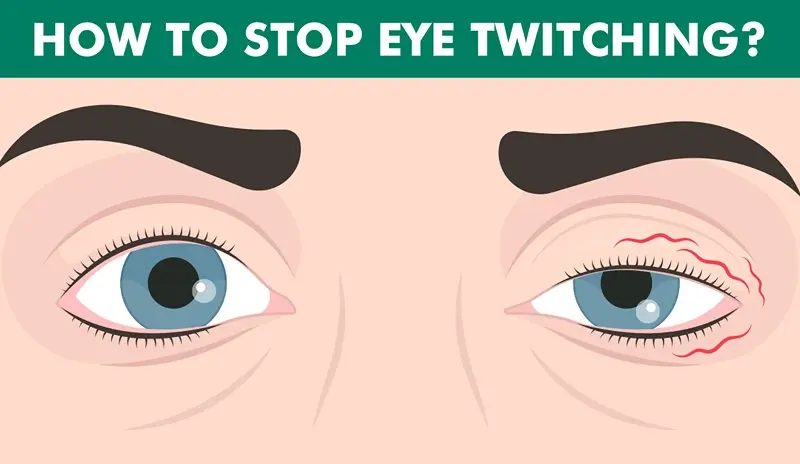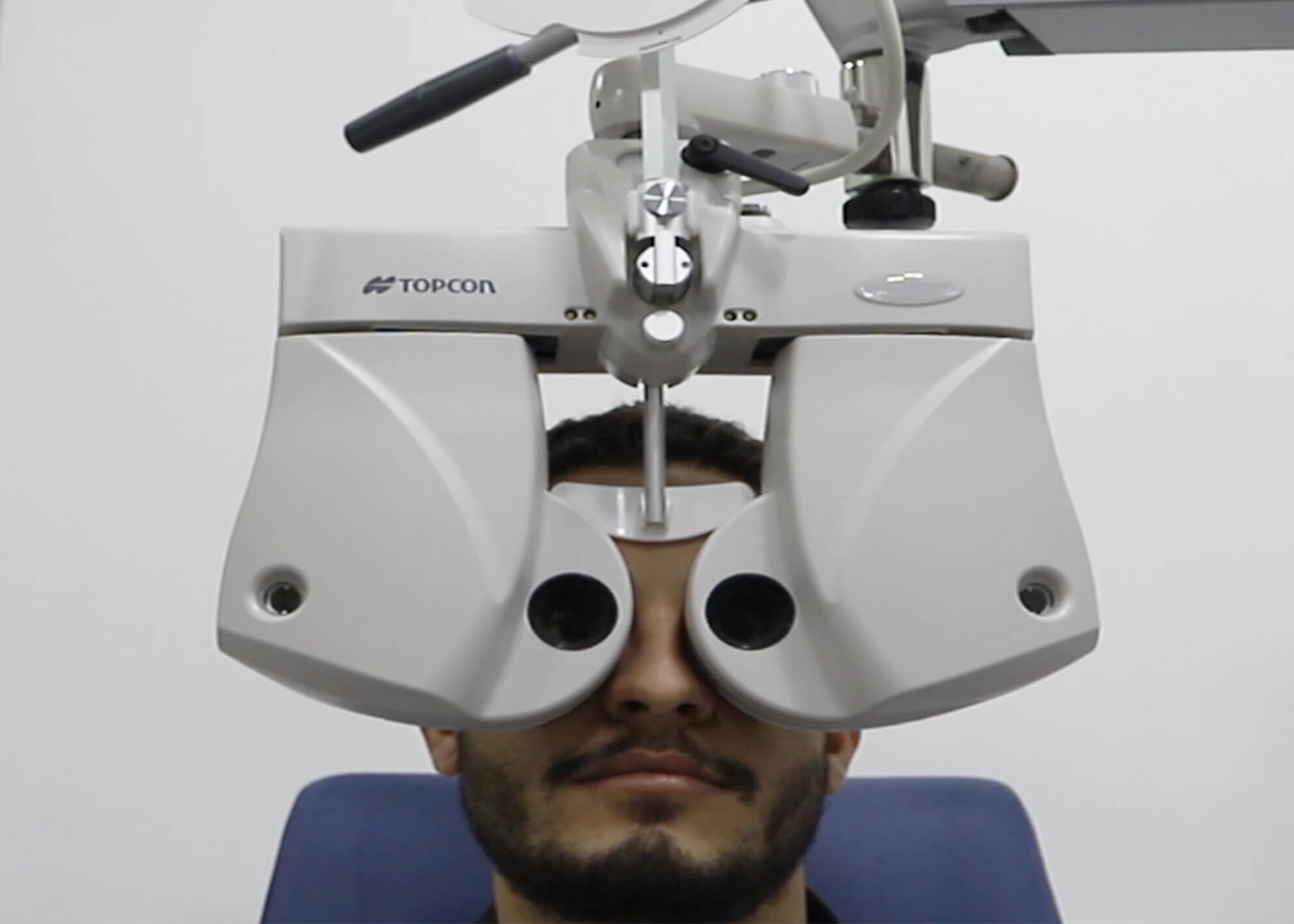Eye Twitching (Blepharospasm) at Eye Clinic DRHC Dubai
Eye twitching, medically known as blepharospasm, refers to the involuntary and repetitive twitching or blinking of the eyelid. While usually harmless, persistent or frequent eye twitching can interfere with daily activities and may indicate an underlying health condition. At DRHC Dubai, our skilled ophthalmologists offer thorough diagnostic evaluations and advanced treatment options to address all forms of eye twitching, ensuring optimal patient care and comfort.
What is Eye Twitching (Blepharospasm)?
Blepharospasm involves abnormal, involuntary muscle spasms of the eyelids, typically affecting both eyes. It can range from minor, occasional twitching to severe cases that impact vision. Eye twitching can be classified into two main types:
- Benign Essential Blepharospasm (BEB): A neurological condition causing chronic eyelid twitching and blinking.
- Secondary Blepharospasm: Caused by external factors such as dry eyes, stress, fatigue, or a neurological disorder.
Common Cause by Eye Twitching
- Fatigue: Lack of sleep is a common trigger for eye twitching.
- Stress: High levels of stress can lead to muscle spasms in the eyelids.
- Eye Strain: Prolonged use of screens, reading, or bright light exposure can cause eye strain and twitching.
- Caffeine and Alcohol: Excessive consumption can irritate the nervous system.
- Dry Eyes: Inadequate lubrication can lead to irritation and twitching.
- Allergies: Allergic reactions can cause itching and involuntary movements.
- Nutritional Deficiencies: Low levels of magnesium or other nutrients can contribute to muscle spasms.
- Neurological Disorders: In rare cases, eye twitching may be linked to conditions like Parkinson's disease, Tourette’s syndrome, or dystonia.
Symptoms of Eye Twitching
- Involuntary blinking or spasms of the eyelid muscles
- Increased frequency of blinking, sometimes progressing to both eyes
- Light sensitivity in some cases
- Eye irritation or dryness accompanying the twitching
- Muscle fatigue around the eyes with prolonged twitching
Diagnosis at DRHC Dubai
At DRHC Dubai, our comprehensive approach to diagnosing eye twitching ensures that we identify the root cause of the condition. A detailed medical history and thorough eye examination are conducted to determine whether the twitching is benign or associated with a more serious condition.
Diagnostic Step Include:
- Medical History Review: Understanding your symptoms, lifestyle factors (stress, fatigue, screen time), and any history of eye problems or neurological disorders.
- Comprehensive Eye Examination: An ophthalmological exam to check for signs of dry eyes, irritation, or underlying eye conditions like blepharitis or conjunctivitis.
- Neurological Assessment: In cases of chronic or severe twitching, a neurological examination may be necessary to rule out conditions such as dystonia or Parkinson’s disease.
- Specialized Tests: Additional diagnostic tools, such as electromyography (EMG), may be used to measure electrical activity in the muscles and identify abnormal muscle function.
By evaluating these factors, our specialists can provide an accurate diagnosis, ensuring the most effective treatment plan.
Treatment at DRHC Dubai
Once a diagnosis is established, DRHC Dubai offers a range of personalized treatment options depending on the cause and severity of your eye twitching. Treatment can vary from simple lifestyle changes to advanced medical or surgical interventions.
Treatment Options:
- Lifestyle Adjustments:
- Stress Management: Reducing stress through relaxation techniques such as meditation, yoga, or breathing exercises can help alleviate symptoms.
- Adequate Sleep: Ensuring sufficient rest is essential to prevent fatigue-induced eye twitching.
- Limit Caffeine and Alcohol: Reducing intake of caffeine and alcohol can help calm the nervous system and minimize twitching.
- Screen Breaks: Regular breaks from digital screens can help reduce eye strain, which is a common cause of twitching.
- Botox Injections:
- For patients with Benign Essential Blepharospasm (BEB) or chronic eye twitching, botulinum toxin (Botox) injections are a highly effective treatment. Botox works by relaxing the muscles around the eyes, temporarily preventing spasms. The effects typically last for several months, after which repeat injections may be necessary.
- Medications:
- Anticonvulsants or Muscle Relaxants: For more severe cases, medications like anticonvulsants or muscle relaxants may be prescribed to help control the muscle spasms.
- Eye Drops and Lubricants: If dry eyes are contributing to the twitching, lubricating eye drops or artificial tears can provide relief by reducing irritation.
- Surgical Interventions:
- In rare, extreme cases where other treatments are ineffective, myectomy surgery may be recommended. This procedure involves removing some of the muscles and nerves around the eyelid to permanently reduce spasms.
- Addressing Underlying Conditions:
- If the twitching is due to an underlying condition such as a neurological disorder or eye irritation, addressing these root causes will be essential in alleviating the symptoms.
Preventing Eye Twitching
While not all cases of eye twitching can be prevented, taking steps to reduce known triggers can help lower the likelihood of recurrence:
- Get Sufficient Sleep: Aim for 7-8 hours of restful sleep per night.
- Manage Stress: Incorporate stress-relief activities into your daily routine.
- Moderate Caffeine and Alcohol Intake: Limit consumption to avoid overstimulation of the nervous system.
- Practice Good Eye Hygiene: Keep your eyes clean, and use artificial tears if needed to maintain moisture.
- Regular Screen Breaks: Follow the 20-20-20 rule: every 20 minutes, look at something 20 feet away for 20 seconds to reduce eye strain.
Why Choose DRHC Dubai
At DRHC Dubai, we provide expert, compassionate care for eye conditions like blepharospasm. Our team of experienced ophthalmologists is dedicated to helping you find relief from eye twitching through personalized treatment plans and the latest medical advancements. Whether you need conservative treatment, Botox injections, or further intervention, DRHC Dubai offers the solutions you need for optimal eye health and comfort.
.png?width=281&height=59&name=bookanappointment%20(1).png)
At Dr. Rami Hamed Center, our Ophthalmology department is dedicated to safeguarding your vision health through expert eye care Professionals. Renowned as one of the best eye care clinics in Dubai our Ophthalmology Specialists provide services for Cataract and retina treatment with Laser and Refractive surgeries.




.png?width=281&height=59&name=bookanappointment%20(1).png)






